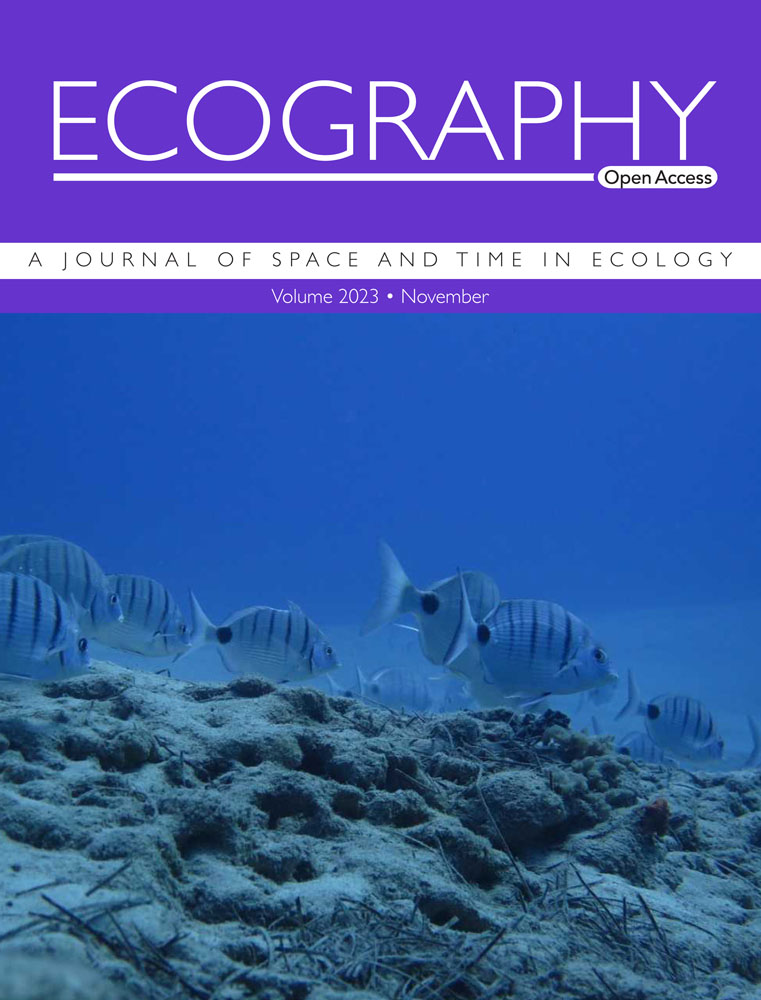Scale-dependent effects of biodiversity and stability on marine ecosystem dynamics
IF 5.4
1区 环境科学与生态学
Q1 BIODIVERSITY CONSERVATION
引用次数: 0
Abstract
The global biodiversity loss is causing abrupt shifts in the structure and functioning of ecosystems with severe ecological and socio-economic consequences. Therefore, improving our understanding of ecosystem dynamics and regime shifts, as well as the stabilizing role of biodiversity across multiple scales is needed. Here we investigate the temporal dynamics and stability of marine ecosystems using high-resolution monitoring data on fish species composition, abundances and traits throughout European Seas. More specifically, we quantify and compare the direction and magnitude of community change at multiple spatial scales and levels of biological organization. Our results show less variability in community trajectories at larger spatial scales and higher levels of biological organization. The main underlying processes providing stability are statistical averaging arising from a larger pool of species, while at smaller spatial scales stability also emerge from functional complementarity channeled through the distribution of species traits within functional groups.生物多样性和稳定性对海洋生态系统动态的尺度依赖效应
全球生物多样性的丧失正在造成生态系统结构和功能的突变,造成严重的生态和社会经济后果。因此,需要提高我们对生态系统动力学和制度变迁的认识,以及生物多样性在多尺度上的稳定作用。在这里,我们通过对整个欧洲海域鱼类物种组成、丰度和特征的高分辨率监测数据来研究海洋生态系统的时间动态和稳定性。更具体地说,我们量化和比较了在多个空间尺度和生物组织水平上群落变化的方向和幅度。我们的研究结果表明,在更大的空间尺度和更高的生物组织水平上,群落轨迹的变异性较小。提供稳定性的主要潜在过程是在较大的物种池中产生的统计平均,而在较小的空间尺度上,稳定性也来自于通过功能群内物种特征分布而产生的功能互补。
本文章由计算机程序翻译,如有差异,请以英文原文为准。
求助全文
约1分钟内获得全文
求助全文
来源期刊

Ecography
环境科学-生态学
CiteScore
11.60
自引率
3.40%
发文量
122
审稿时长
8-16 weeks
期刊介绍:
ECOGRAPHY publishes exciting, novel, and important articles that significantly advance understanding of ecological or biodiversity patterns in space or time. Papers focusing on conservation or restoration are welcomed, provided they are anchored in ecological theory and convey a general message that goes beyond a single case study. We encourage papers that seek advancing the field through the development and testing of theory or methodology, or by proposing new tools for analysis or interpretation of ecological phenomena. Manuscripts are expected to address general principles in ecology, though they may do so using a specific model system if they adequately frame the problem relative to a generalized ecological question or problem.
Purely descriptive papers are considered only if breaking new ground and/or describing patterns seldom explored. Studies focused on a single species or single location are generally discouraged unless they make a significant contribution to advancing general theory or understanding of biodiversity patterns and processes. Manuscripts merely confirming or marginally extending results of previous work are unlikely to be considered in Ecography.
Papers are judged by virtue of their originality, appeal to general interest, and their contribution to new developments in studies of spatial and temporal ecological patterns. There are no biases with regard to taxon, biome, or biogeographical area.
 求助内容:
求助内容: 应助结果提醒方式:
应助结果提醒方式:


